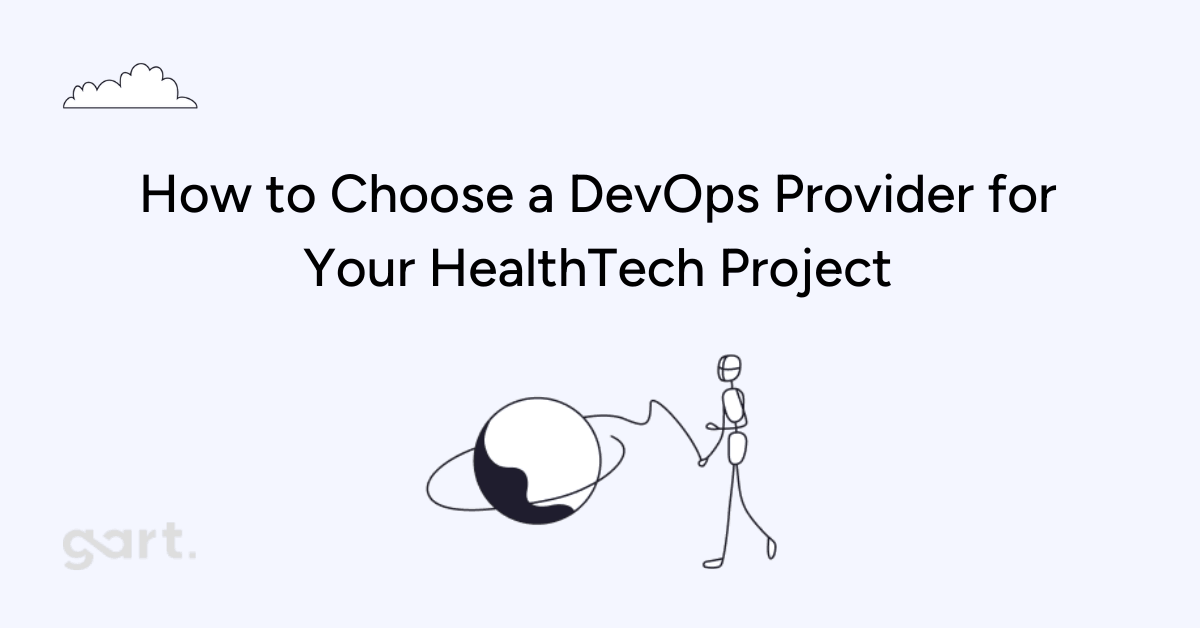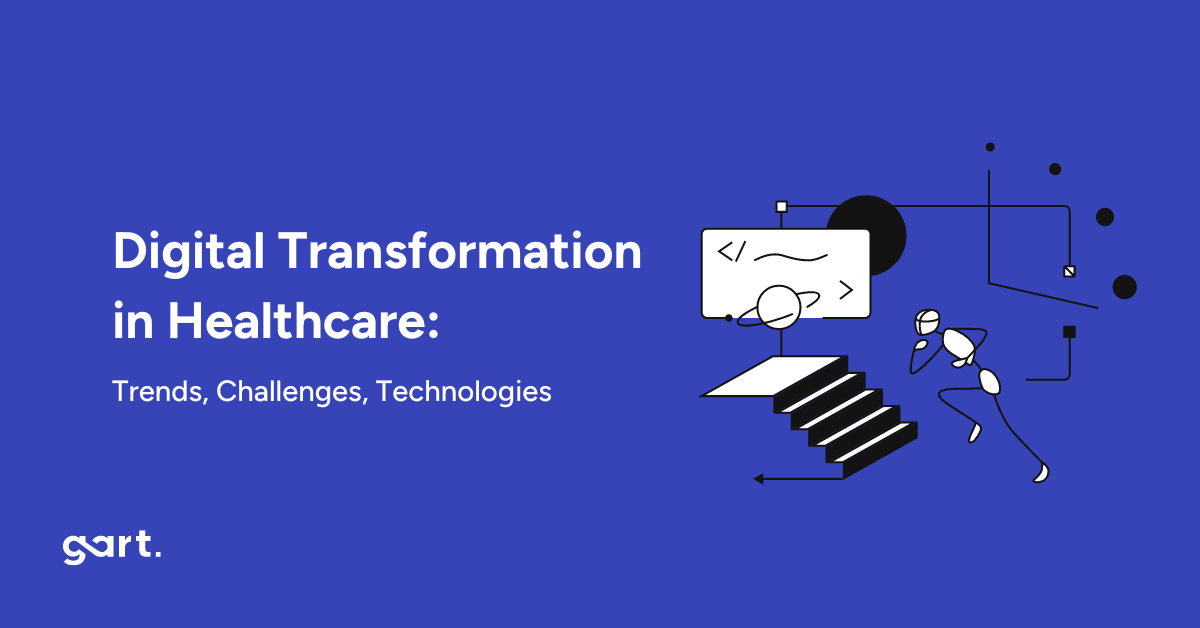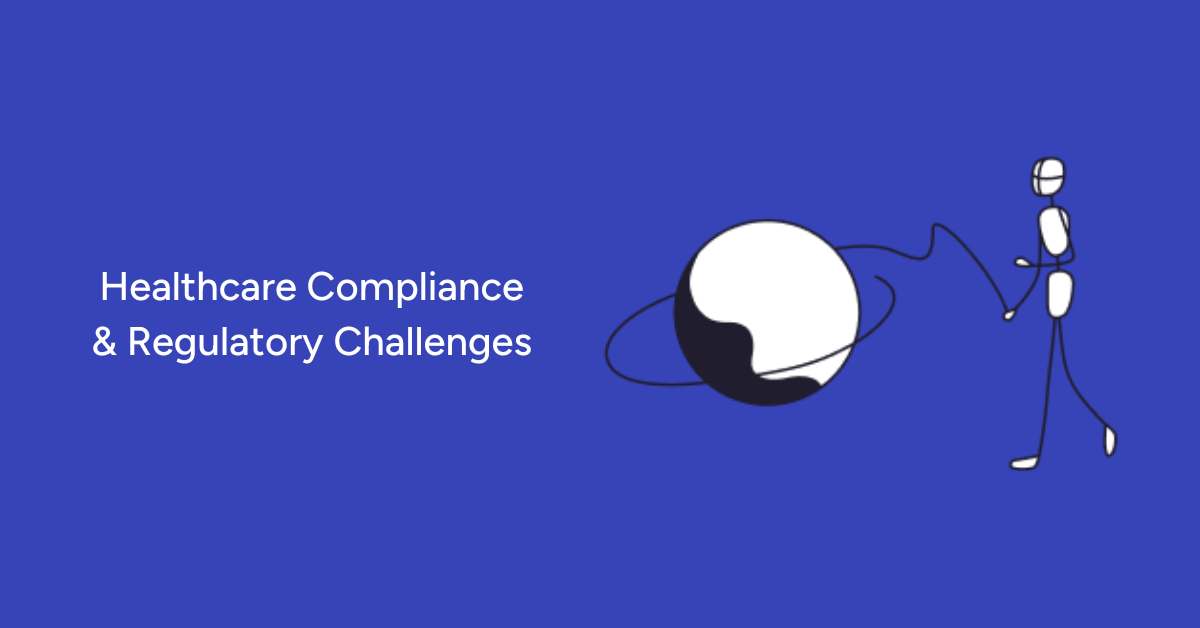- Why DevOps in HealthTech Is a Critical Decision
- Understanding Your Project Stage before Choosing a Vendor
- Key Criteria to Select the Right DevOps Partner
- Avoiding Common Pitfalls
- Essential DevOps Services You Should Expect from a Provider
- Case Studies – Real DevOps Transformation Stories in Healthcare
- 10 Steps to Successfully Implement DevOps in Your Healthcare Project
- DevOps Vendor Comparison Checklist
- When to Choose In-House vs Outsourced DevOps Teams
- Your Next Steps to a Reliable DevOps Partnership
Navigating the HealthTech or MedTech landscape can be complex, especially with numerous challenges and regulations. The right DevOps partner can help you move faster, ensure data privacy, and scale your product sustainably. The wrong one? That could mean downtime, HIPAA violations, and massive fines.
So, how do you choose wisely, especially when you’re juggling product development, clinical workflows, compliance, and tight budgets?
This guide breaks down everything you need to know about selecting the right DevOps partner specifically for HealthTech or MedTech projects. Whether you’re still brainstorming your MVP or scaling a HIPAA-compliant SaaS platform, you’ll find practical advice, case studies, and a step-by-step plan for implementing DevOps the right way.
Why DevOps in HealthTech Is a Critical Decision
HealthTech is one of the most regulated, complex, and high-stakes industries out there. You’re not just pushing code or deploying features — you’re handling protected health information (PHI), interfacing with legacy systems, and potentially influencing patient outcomes. That means infrastructure decisions carry a lot more weight.
Let’s face it: a bug in a fitness app might be annoying, but a downtime in an e-prescription system? That’s a public health crisis.
A great DevOps provider helps you:
- Deploy features faster without risking stability
- Stay compliant with HIPAA, GDPR, and other mandates
- Automate tests, security checks, and release processes
- Avoid vendor lock-in by using portable, well-documented infrastructure
But here’s the problem: most DevOps firms don’t understand healthcare. They treat a HealthTech app like any other SaaS product. That’s why you need a partner who knows the terrain — and that’s exactly what this article will help you find.
What is DevOps, Simply Put?
DevOps is the practice of combining development (Dev) and IT operations (Ops) to improve collaboration, shorten development cycles, and increase deployment frequency. It’s about building pipelines that automatically test, deploy, and monitor applications in production.
But in healthcare, DevOps means something more: “How do we move fast without breaking things, especially patient privacy, data integrity, and compliance?”
Why DevOps Is Different in Healthcare
Here’s what makes DevOps in healthcare so complex:
- Regulations: You can’t deploy freely unless your code passes HIPAA or GDPR compliance checks.
- Data sensitivity: You’re dealing with PHI and sensitive records that require strict access controls and encryption.
- High uptime demands: Downtime isn’t just inconvenient—it can disrupt care delivery.
- Legacy system integrations: Many health systems still run on outdated tech that your platform needs to talk to.
- Audit readiness: Everything must be logged, reviewed, and justifiable.
Common Infrastructure Challenges in HealthTech
- Inconsistent environments (dev ≠ prod)
- Lack of disaster recovery plans
- No CI/CD pipelines or slow manual deployments
- Cloud misconfigurations that leak sensitive data
- No monitoring or alerting systems
- Noncompliant access control practices
In short, you need a DevOps partner that goes beyond Jenkins and Docker—you need someone who understands what a Business Associate Agreement (BAA) is, how to audit role-based access, and how to encrypt backups of PHI.
Understanding Your Project Stage before Choosing a Vendor
Before diving into vendor selection, it’s essential to understand where your project stands in its development journey. The stage could be different, but let us give you a couple of ideas.
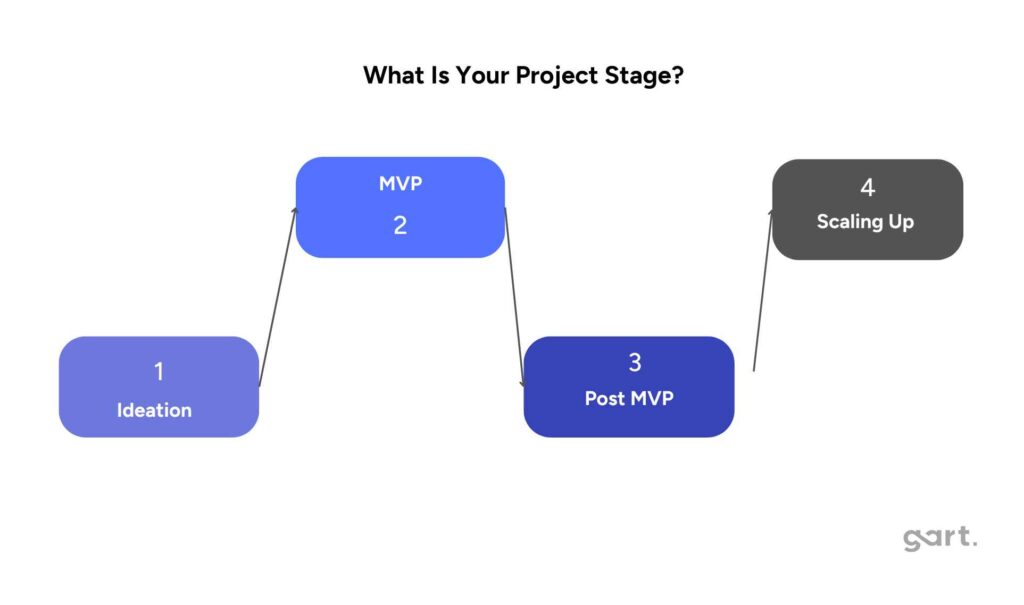
Ideation
At this stage, you have a concept but may lack a detailed roadmap or designs. You might consider hiring an in-house team to develop ideas or working with an outsourcing provider for initial development. DevOps here, usually, not a priority.
MVP Development
With proof of concept, you’re ready to develop a minimum viable product (MVP). To test the idea, it is better to choose a trusted partner in development and DevOps.
Post-MVP
In this phase, your product is commercially viable, and you may need to combine in-house expertise with the external expertise of development and DevOps vendors, who are proficient in HealthTech.
Scaling Up
For established products looking to grow, consider getting support from acquiring external expertise, an IT Consultant, or an IT service provider, who will help you to automate operations, scale up, and optimize resources sustainably. Gart Solutions can be one of the options to consider.
Key Criteria to Select the Right DevOps Partner
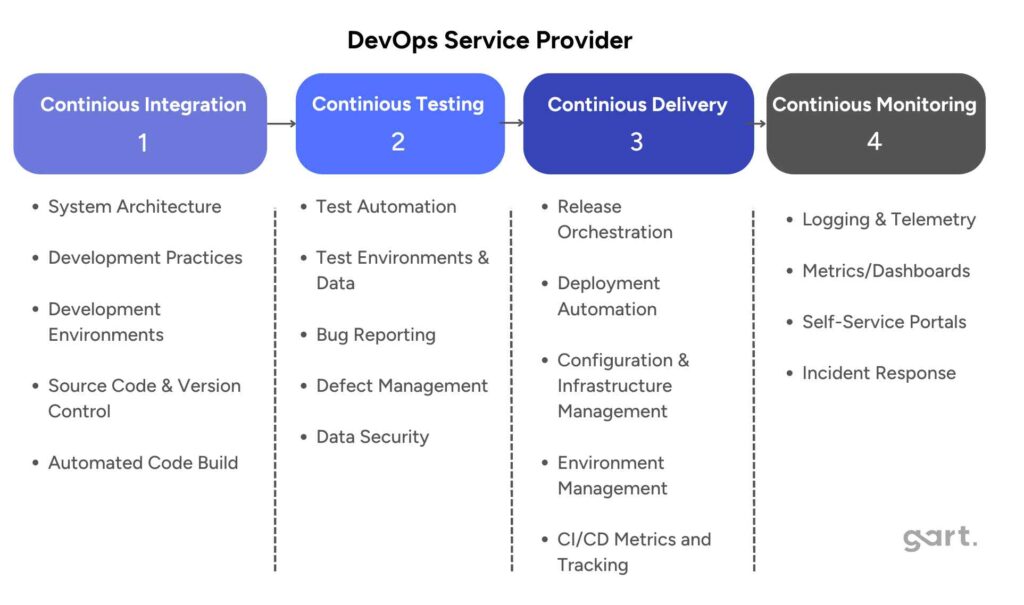
Choosing the right DevOps provider isn’t about who has the flashiest tools. It’s about finding a partner who aligns with your goals, understands your industry, and can grow with you. Here’s what to look for:
1. Industry-Specific Technical Expertise
You don’t just want a vendor who knows Docker or Kubernetes. You want someone who understands how those tools fit into clinical workflows, patient data security, and HIPAA-ready environments.
2. Domain Knowledge in HealthTech
Healthcare has its own language: HL7, FHIR, ICD codes, etc. Your DevOps partner should be fluent in it -or they’ll make costly mistakes.
A vendor with prior experience in the HealthTech sector can offer insights that save time and resources.
Look for a partner that has previous projects like yours and understands the regulatory requirements landscape.
Gart Solutions Project Examples are listed here.
3. Real Client References
Client references play a crucial role in vendor selection. Positive feedback and high ratings from past clients serve as a testament to the vendor’s reliability and expertise. Speak with past clients — preferably from healthcare. Were deadlines met? Were compliance audits passed? Were there any outages?
At Gart, our 5-star reviews and client testimonials reflect our commitment to excellence and our proven track record in the healthcare sector. Take a look at Clutch.
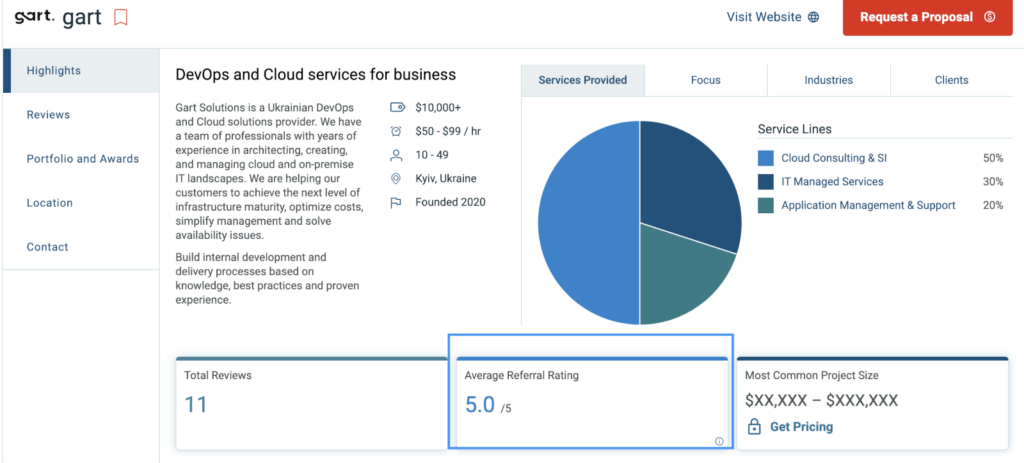
4. Compliance Capabilities
Ask about:
- HIPAA audits
- SOC 2 reports
- BAA policies
- GDPR readiness
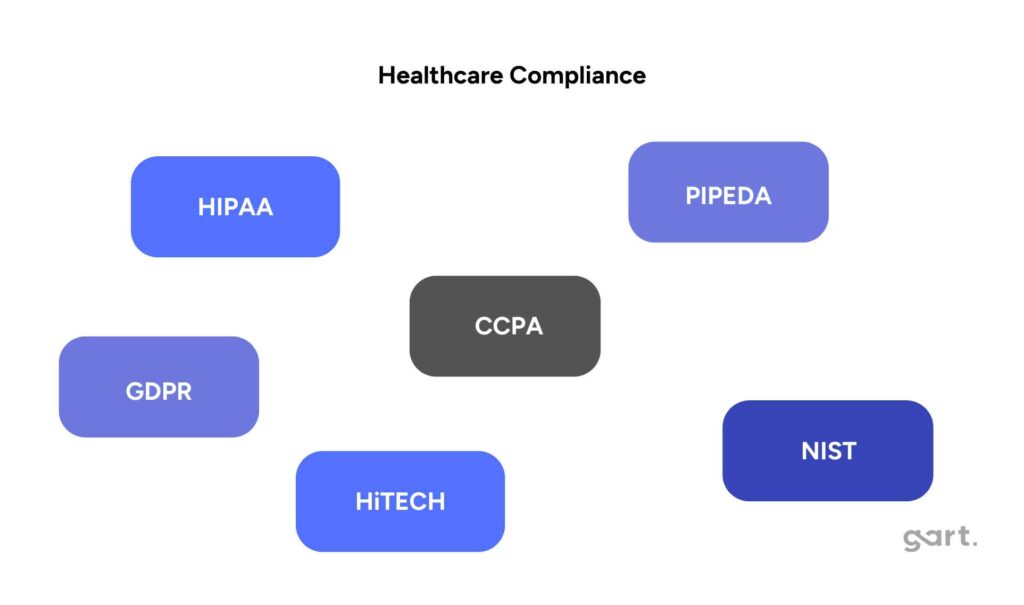
Gart helps to prepare for all types of Healthcare compliance requirements & audits.
Contact us for a consultation.
5. Scalability
The best providers build systems that scale. Can they ramp up with more engineers? Can they handle a traffic spike from a major hospital launch?
Your vendor should be capable of scaling their team quickly. For example, one of our clients, a startup focused on chronic disease management, sought vendors that could expand their team without delay.
6. Sustainability Practices
Choose vendors who demonstrate a commitment to sustainable practices. This can be assessed by asking about their long-term goals and practices and reviewing their sustainable projects and practices.
Here, at Gart, we outlined our commitment to driving a sustainable future for business.
Our sustainable projects are also listed.
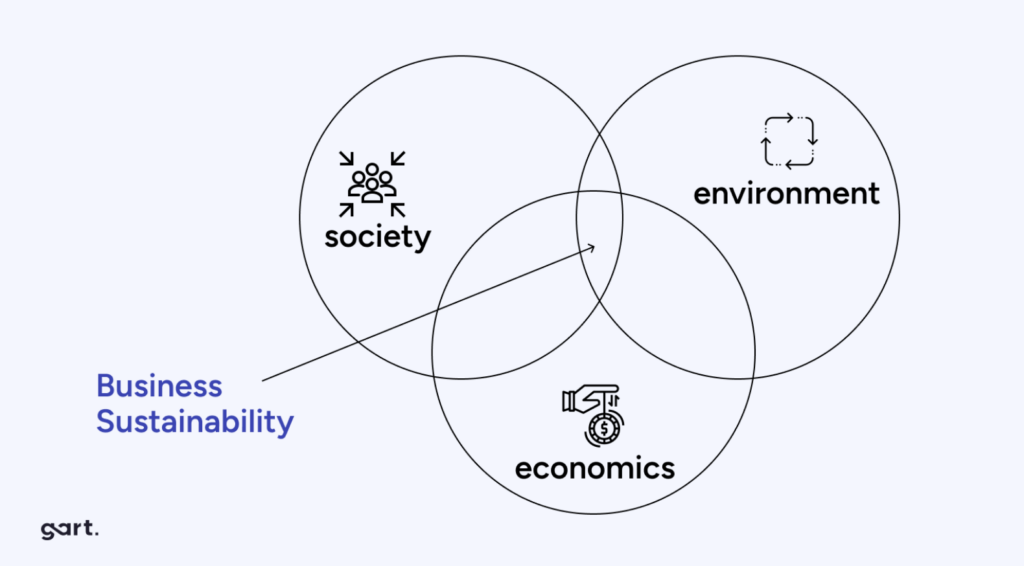
Avoiding Common Pitfalls
While selecting a DevOps or tech vendor, be aware of common mistakes that organizations often make:
- Focusing solely on cost.
- Neglecting to assess cultural fit.
- Ignoring the importance of a solid communication plan.
Each of these pitfalls can derail your project and lead to unsatisfactory outcomes.
Essential DevOps Services You Should Expect from a Provider
If you’re investing in a DevOps partner, you want more than just someone who knows how to write a few Bash scripts or spin up an EC2 instance. The right provider should offer a suite of services that cover your infrastructure needs from planning to production, with a strong healthcare lens.
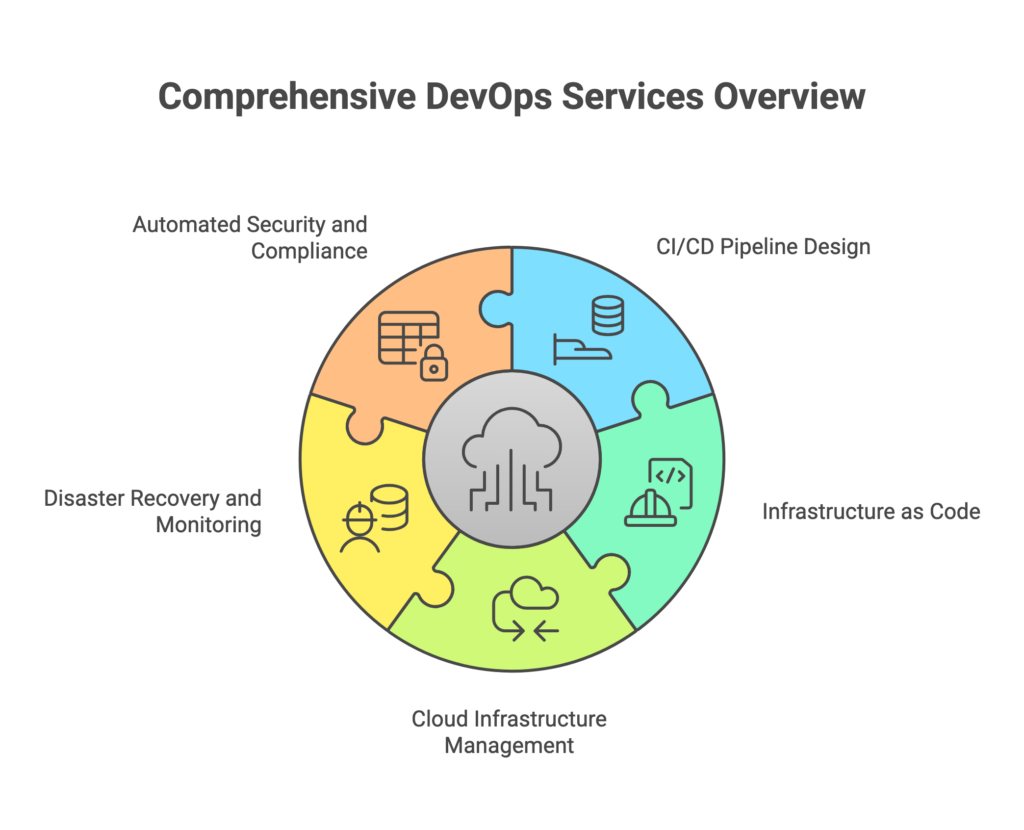
CI/CD Pipeline Design
Continuous Integration and Continuous Deployment are the heartbeat of modern software development. For HealthTech, CI/CD pipelines ensure that features, patches, and security updates are tested, verified, and deployed in a repeatable, auditable process.
Your DevOps partner should:
- Set up GitOps-based CI/CD flows
- Support rollback mechanisms
- Implement testing automation (unit, integration, security)
- Deploy to environments with permission-based access
Infrastructure as Code (IaC)
Manual infrastructure configuration is error-prone and not scalable. IaC ensures your environments are reproducible, consistent, and reviewable like any software code.
Tools like Terraform, Pulumi, or Ansible allow for:
- Rapid provisioning of cloud environments
- Disaster recovery with environment replication
- Role-based access for compliance
Cloud Infrastructure Management
From provisioning virtual machines to configuring autoscaling and backups, your vendor should be well-versed in the top cloud platforms used in HealthTech (AWS, Azure, GCP).
They should also support:
- Multi-cloud or hybrid strategies
- Cost optimization via usage monitoring
- Cloud-native tools (EKS, Azure DevOps, etc.)
Disaster Recovery, Backups, and Monitoring
What happens when a system goes down at 2 a.m.? A good DevOps partner will already have monitoring, alerts, and backups in place.
They should provide:
- 24/7 system monitoring
- Logs for post-mortems
- Automated nightly backups
- Disaster recovery documentation
Automated Security and Compliance Tools
Security can’t be bolted on — it needs to be baked into the DevOps process. Expect your provider to use tools like:
- Snyk, Trivy, or SonarQube for security scanning
- Vault or AWS Secrets Manager for secret storage
- Audit trails for every deployment
Case Studies – Real DevOps Transformation Stories in Healthcare
Real results speak louder than marketing pages. Let’s dive into two case studies that highlight what a strong DevOps partner can do in the HealthTech space.
Case Study 1: Modernizing CI/CD for a National E-Health Platform
Challenge:
A government-backed electronic medical record system was plagued with manual deployments, poor logging, and a lack of rollback features.
Solution:
Gart Solutions revamped the platform by:
- Building a full CI/CD pipeline with GitLab
- Deploying self-hosted runners on-premises
- Automating deployments to three regulated environments
- Enabling rollback and test gating before production releases
Outcome:
- Deployment time cut by 80%
- Achieved HIPAA and GDPR compliance
- Reduced human errors in deployments to near zero
Learn more about the project here.
Case Study 2: Cloud Migration and Automation for a SaaS Health Platform
Challenge:
A US-based startup offering remote chronic disease management wanted to shift from AWS to Azure and automate their .NET/Node.js infrastructure.
Solution:
Gart delivered:
- IaC-based infrastructure on Azure with Terraform
- CI/CD pipelines with Azure DevOps
- Secure secrets management using Azure Key Vault
- Logging, monitoring, and alerting via Prometheus and Grafana
Outcome:
- Zero downtime during migration
- Passed third-party compliance audit in 3 weeks
- Faster deployment cycles (down from 2 hours to 15 minutes)
Learn more about the project here.
Overall, Gart Solutions has more than 5 projects in its portfolio of Healthcare and Medtech projects, and also, more than 15 years of industry experience with its leaders and IT transformation consultants.
Contact us for a Free consultation.
10 Steps to Successfully Implement DevOps in Your Healthcare Project
So, you’ve chosen a vendor. Now what? You need a clear implementation roadmap. These 10 steps help ensure a smooth transition to DevOps in a regulated healthcare environment.
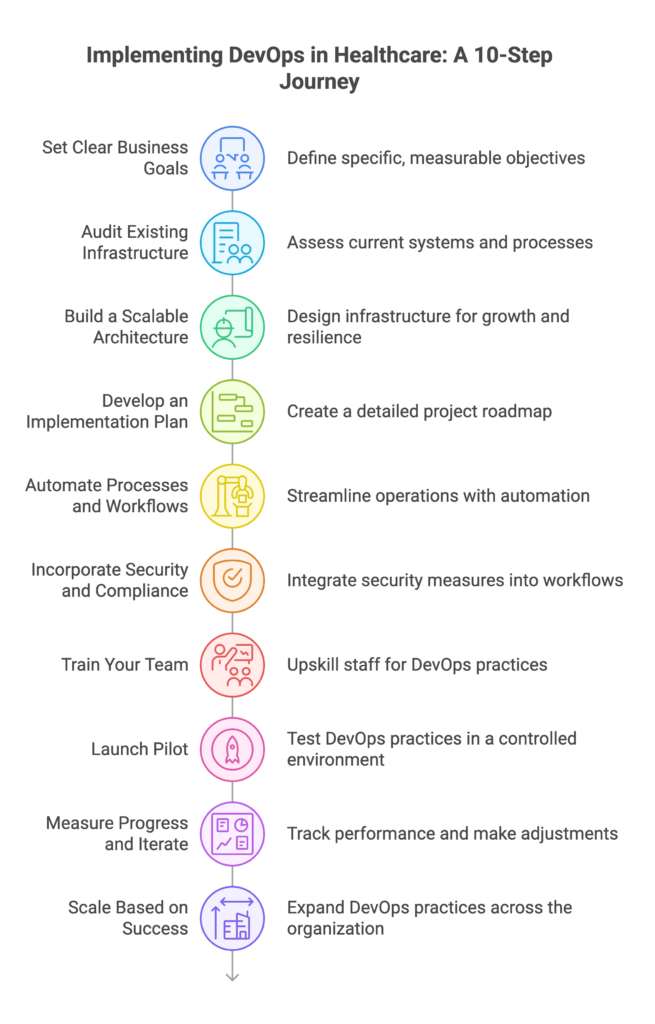
Step 1: Set Clear Business Goals
Don’t just say “we want DevOps.” Instead, say:
- “We want to reduce release time by 50%.”
- “We want automated backups with a 15-minute recovery objective.”
Link your DevOps goals to outcomes like patient safety, speed to market, or compliance readiness.
Step 2: Audit Existing Infrastructure
Before introducing automation, map out what you have:
- What environments exist?
- Are builds tested? How?
- Are secrets stored securely?
- What happens when something breaks?
Your provider should document this as part of the onboarding phase.
Step 3: Build a Scalable Architecture
Work with your DevOps partner to design infrastructure that grows with your business:
- Stateless microservices
- Managed databases with backups
- Auto-scalers
- Regional failovers for uptime
Use diagrams, threat models, and infrastructure blueprints.
Step 4: Develop an Implementation Plan
This includes:
- A week-by-week breakdown of tasks
- KPIs for performance and stability
- Training sessions and documentation delivery
- Milestones for CI/CD, monitoring, and compliance
Step 5: Automate Processes and Workflows
Automate:
- Code testing
- Secrets rotation
- Deployments
- Certificate renewals
- Access permissions
Each automated process should have logging, alerting, and version control.
Step 6: Automate Processes and Workflows
Incorporate security and compliance considerations into your DevOps workflows. Use automated tools to monitor security standards and ensure all data handling complies with regulations like HIPAA and GDPR. Implement security features such as role-based access controls, data encryption, and multi-factor authentication to protect sensitive patient information.
Step 7: Train Your Team
Support the transition to DevOps with training and educational resources. Invest in upskilling your workforce to ensure they can effectively adopt DevOps practices and focus on meeting organizational business goals and care delivery.
Step 8: Launch Pilot
Start with a small, manageable project to apply DevOps practices in a controlled setting. This allows for quick resolution of challenges and evaluation of strategy effectiveness without disrupting processes. A successful pilot can serve as a model for broader DevOps adoption.
Step 9: Measure Progress and Iterate
Implement metrics and KPIs to track the performance of your DevOps initiatives against defined goals. Regular evaluation allows for data-driven adjustments that enhance clinical efficiency.
Step 10: Scale Based on Success
After validating the success of your pilot project, expand DevOps practices to other areas within your entity. Scaling involves broadening the use of DevOps tools and methodologies while reinforcing the collaborative and agile culture that supports DevOps across teams and projects.
By following these steps, you can effectively implement DevOps in your healthcare settings, enhancing efficiency and delivering better patient care.
DevOps Vendor Comparison Checklist
Choosing the right DevOps provider for your HealthTech startup or scaling product can feel overwhelming. That’s why we’ve put together a simple yet powerful checklist you can use to evaluate different vendors side by side.
Here’s what to compare:
| Criteria | What to Look For | Why It Matters |
|---|---|---|
| Healthcare Experience | Has worked on HIPAA/GDPR-compliant projects | Proven understanding of regulatory demands |
| Client References | Available testimonials, case studies, Clutch profile | Confidence in reliability and delivery history |
| Security Practices | Role-based access control, encryption, audit logs | Prevents data breaches and supports compliance |
| Infrastructure Knowledge | Mastery of IaC, CI/CD, Cloud-native tools | Ensures your system is scalable, stable, and automatable |
| Team Scalability | Ability to scale up team in short timeframes | Critical when you’re growing or need rapid deployment |
| Communication Style | Transparent reporting, real-time issue resolution | Reduces friction and misalignment |
| Support & Monitoring | 24/7 availability, alerting systems, backups | Essential for mission-critical healthcare apps |
| Pricing Transparency | Clear hourly/project rates, no hidden fees | Avoids budget blowouts and scope creep |
| Post-Project Handover | Documentation, knowledge transfer | Prevents vendor lock-in and supports internal training |
Pro tip: Use this checklist in a spreadsheet and score each vendor from 1–5 on each item. Multiply the scores by the importance weight (you decide what matters most), and let the data help guide your decision.
When to Choose In-House vs Outsourced DevOps Teams
| Criteria | In-House DevOps Team | Outsourced DevOps Provider |
|---|---|---|
| Best For | Long-term internal capability building and infrastructure control | Fast setup, cost-efficiency, and healthcare-specific expertise |
| Cost | High upfront cost (hiring, onboarding, salaries) | Lower initial investment, pay-as-you-go or project-based |
| Speed of Setup | Slower (can take months to recruit and onboard) | Faster (teams ready to deploy from day one) |
| Scalability | Limited to internal hiring cycles | Easy to scale up or down based on project needs |
| Compliance Knowledge | Depends on internal training and experience | Can access specialists with deep HIPAA/GDPR experience |
| Control Over Processes | Full control over internal systems and documentation | Shared control, requires clear contracts and expectations |
| Knowledge Retention | Institutional knowledge stays within the company | Risk of knowledge gaps if the vendor is not documented well |
| Innovation Exposure | Limited to internal team’s experience | Brings in cross-industry best practices and tooling updates |
| Team Management | You manage HR, training, and performance | Vendor manages their own team, freeing your time |
| Use Case Fit | Established companies with predictable infrastructure needs | Startups, MVPs, scaling teams needing rapid, expert support |
| Security Policies | Direct control, aligns with internal data policies | May need extra NDAs/BAAs, vetting for security standards |
Pro Tip: Consider a hybrid approach — outsource to experts early, then gradually build an internal team as you grow.
Your Next Steps to a Reliable DevOps Partnership
Choosing a DevOps provider for your HealthTech project isn’t just about checking technical boxes; it’s about finding a partner who understands the responsibility and regulatory nuance that comes with working in healthcare.
Here’s what you should do next:
- Clarify your product stage and goals.
- List the infrastructure pain points you’re facing.
- Use the vendor checklist to assess your options.
- Interview potential vendors — ask about case studies and compliance.
- Start small. Run a pilot. Review results. Then scale.
Don’t settle for a one-size-fits-all solution. Look for a partner who listens, understands healthcare, and builds systems that support safe, fast, and compliant growth.
If you’re ready to move from theory to action, whether you’re just validating an idea or scaling nationwide, Gart Solutions can help you simplify your DevOps journey in HealthTech.
Contact Gart Solutions.

